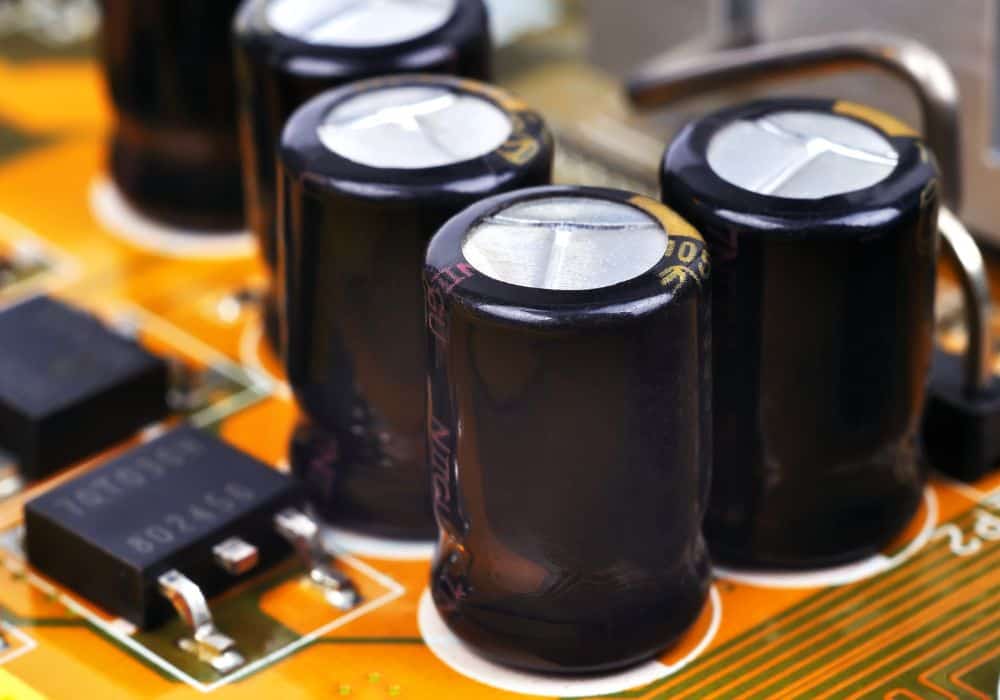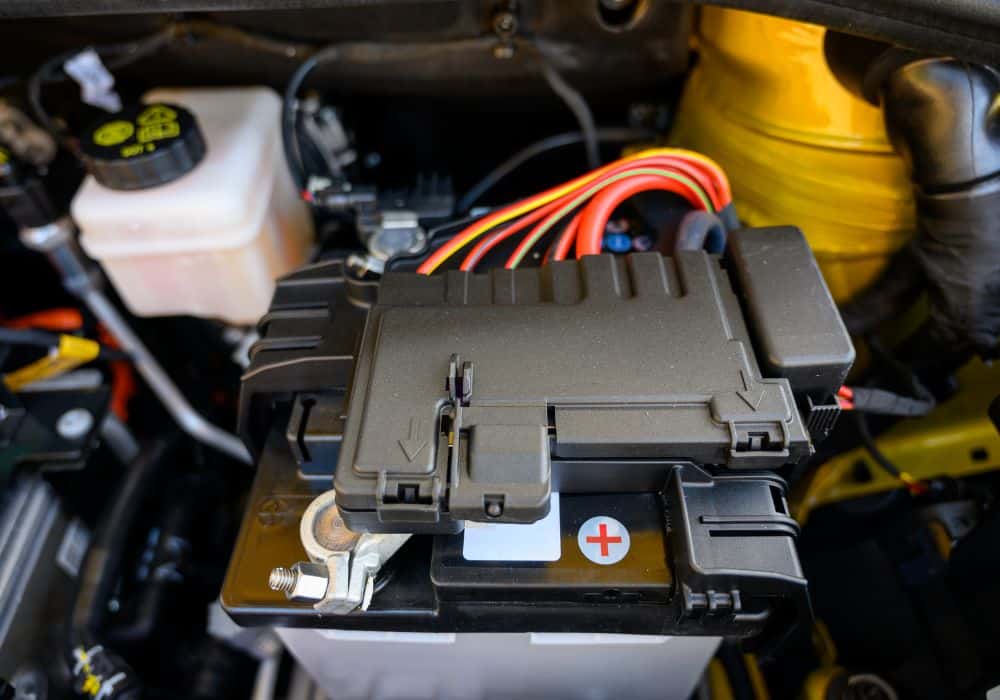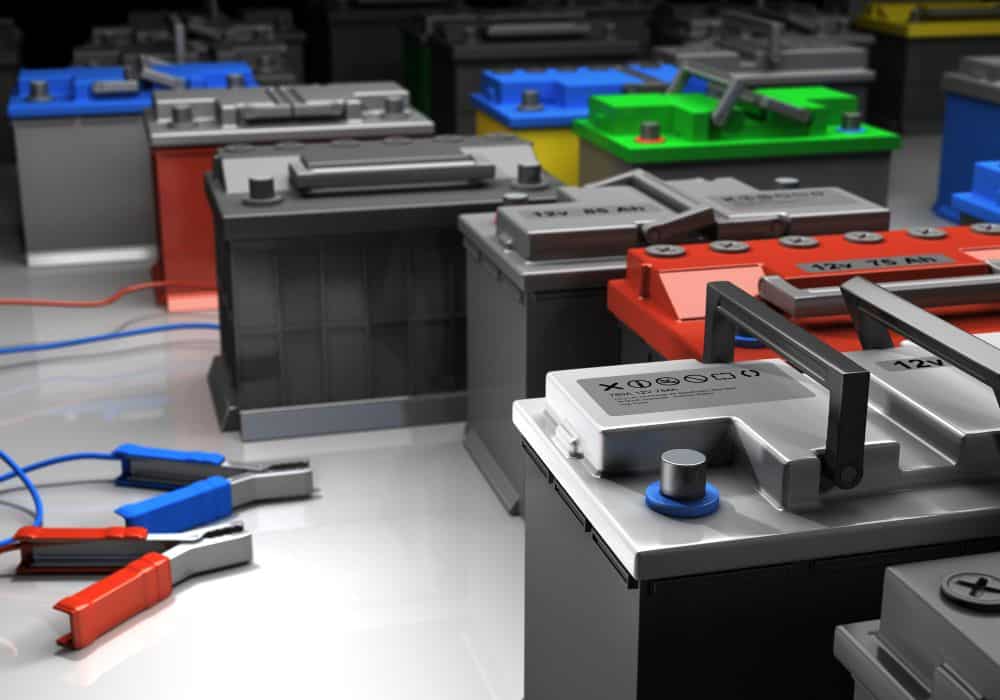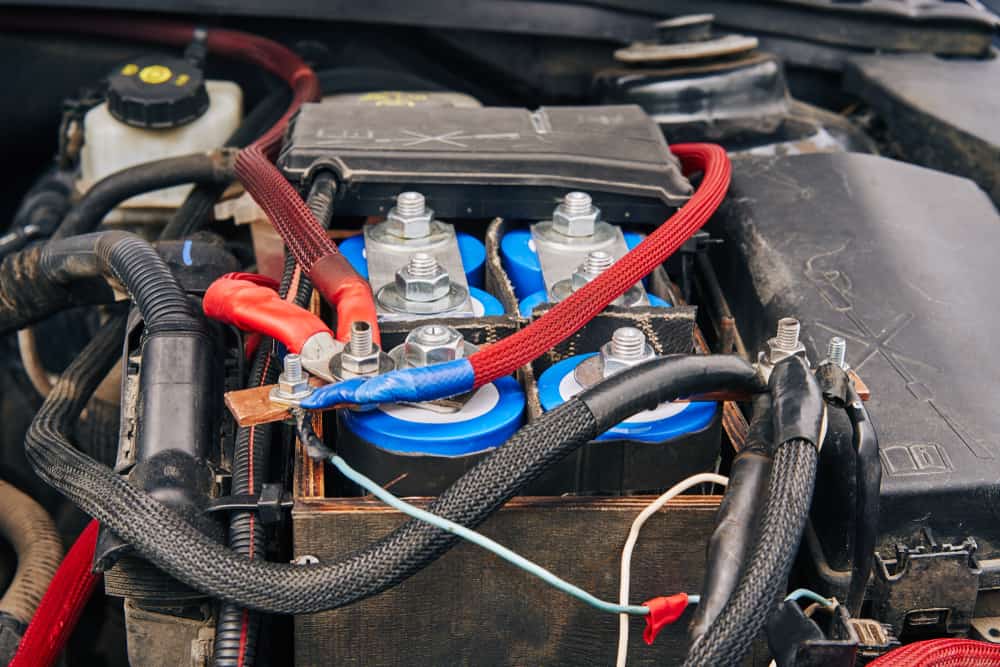Don’t upgrade your car audio system until you’ve read this. But if you have, this post will help you solve the next big challenge; powering your audio system.
Upgrading your car audio system is good, but high-quality audio consumes more power and can impact other parts of your car, including the dashboard and headlights.
So, how do you boost your current car’s audio power; do you need a car audio capacitor or a battery?
In this guide, I will break down the similarities and differences in the simplest term possible, with no technical jargon. This will help you decide which option is best for you, so you can have the best audio experience in your car.
Table of Contents
What Does a Car Audio Capacitor Do?

A car audio capacitor stores power from the car battery and releases it to the amplifier to boost its performance.
When you install a new audio system in your car, it comes with a larger and high-power amplifier which requires more current than your car’s electrical system is generating. Unfortunately, this results in poor performance of the new car stereo and/or dimming headlights when playing loud music or heavy bass.
An audio capacitor helps provide the amplifier with an extra current, allowing your car stereo to function at full blast.
They are typically installed near the amplifier. This helps to ensure that they provide a consistent power supply to the amplifier and stabilize the voltage in the car’s electrical installation.
However, a car audio capacitor does not produce any current on its own or add extra power to your car’s electrical system beyond what is derived from the battery.
Instead, it prevents the amplifier from drawing additional current from the electrical system by providing it with the quick jolt energy required to function efficiently.
What Does a Car Battery Do?
I’m sure you know your car battery supplies the jolting power that starts your engine. But that’s not all; through the alternator, the battery also supplies power to other parts of the car, such as the lights, turn signals, power locks, windows, and stereo.
So, the battery is an essential part of your car’s audio system, and you cannot get the maximum performance out of your audio system without a good battery.
Does this mean you should replace your car battery when you install a new audio system? Well, this depends on the electrical needs of your vehicle. You may need to add a secondary battery or upgrade your stock battery to a higher-end one.
Whichever one you choose, upgrading or adding a second battery can help to increase the power capabilities of your car, reduce light dimming issues and other electrical issues, as well as allow your stereo to run for a longer time when the engine is off.

Audio Capacitor or Battery, What Are the Differences?
So far, it seems batteries and capacitors perform similar functions of storing and supplying electrical energy. However, there are significant differences between them. Let’s consider the basic features of these devices;
1. Power generation
Batteries are the original source of power in a car. They supply the power to start the car engine and provide current to other components of the car.
Car audio capacitors, on the other hand, don’t produce any current on their own; rather, they take energy from the battery and supplies to the amplifier.
2. Power Storage and Transfer
Capacitors store their potential energy in the form of an electric field which can be distributed quickly. As such, a car audio capacitor provides the amplifier with an on-demand power source.
Whereas stored battery energy is in a chemical form. This results in a slower distribution as the chemical energy has to be transferred into electrical before distribution.
3. Voltage stability
The voltage level of a battery fluctuates depending on how much charge it has left. It will drop if the battery is discharged completely. On the other hand, car audio capacitors have a fixed voltage output.
This can help ensure your audio system gets a consistent level of power and doesn’t experience any interruptions.
4. Charging/discharging Cycles
A battery can be recharged many times before it loses its ability to hold a charge. In contrast, a capacitor only holds a limited amount of charge. Once it reaches its limit, it must be replaced.
This can be seen as an advantage of batteries over capacitors – since batteries can be reused multiple times, they may be more cost-effective in the long run.

5. Durability
Batteries are made up of chemicals that can deteriorate over time. As a result, they lose their ability to store the energy needed to power your car stereo. This means that they require periodic replacement.
On the other hand, car audio caps are made up of solid metal plates. These plates do not wear down like chemical compounds. Therefore, they last much longer than a battery.
6. Cost
If you’re looking to boost your high-end audio system on a budget, capacitors are a great option. They cost significantly less than batteries; for example, at Walmart, you can get a 12V automotive battery for a minimum of $70 and up to $700, while a 12V audio capacitor costs around $57-$100.
When Do You Need a Car Audio Capacitor?
Capacitors improve your car audio system by providing a quick burst of energy and stabilizing voltage levels. Here are situations where a capacitor might be a better choice for you
1. Other Car Components Acting Up
If you have a newly installed audio system with a high-powered amplifier that soaks up your car’s electric current. A good indicator of this is dimming headlights, especially when the speaker is turned up loud or the bass is playing.
A capacitor of at least 2-3 farad of capacitance comes in handy in this situation. It stabilizes the voltage levels and keeps your audio system performing at its peak without affecting other components of your car.
2. You’re a Fan of Strong Bass Music
If you enjoy music with strong bass, you’ll notice peaks and transients in the songs, especially with low frequencies.
To accommodate this, your amp and subwoofer will need high amounts of extra power for those brief moments. Capacitors at a rate of at least 1 farad per 500watts can help supply that power and make sure your music sounds great, even during the most intense passages.

3. Experiencing Signal Noise
A capacitor can filter out any unwanted noise in a DC (direct current) power signal by essentially blocking any AC (alternating current) components. This can be really useful in ensuring that you have a clear and strong signal.
Cons Of Using Car Audio Capacitors
Although an audio capacitor can improve the sound quality of your car, it does have some drawbacks:
- Capacitors have a very limited power supply duration and quantity. While your capacitor charges quickly, it discharges in milliseconds.
- When the capacitor recharges, the voltage drops instantly, limiting the current supplied to the amplifiers.
- Because the capacitor does not generate its own power, it adds to the load on the alternator. This means that adding a capacitor to a stock battery and alternator can limit the amount of current supplied to other car parts.
- Capacitors are expensive and quite technical to install. As such, never attempt to install a capacitor in your car on your own, especially if you lack the technical knowledge. If you do, there is a good chance that you will cause more problems to the car.
When Do You Need a New or Extra Battery?
There are unique situations when installing a larger or secondary battery, and an alternator is the better option to upgrade your car’s electrical system;
1. You Turn Up the Music When the Car Engine is Off
If you have a high-performance car audio system that you want to show off, install a second battery. This allows you to play your car stereo for longer while your engine is not running.
The size of the battery you get depends on how long you wish to play the stereo. To estimate your battery’s listening life and to determine what size of the second battery to install, use the following equation;
10 X (Battery Amp Hour) / (Load Power in Watts) = Battery running hours.
For example, if your battery has a capacity of 100 Amp Hour and your amplifier draws 1,000 Watts, the equation would be:
10 x 100AH / 1000-watts = 1Hour.
That means you should be able to listen to music for an hour before your car battery dies. However, if you want to use your car stereo for longer, such as during trips and camping, you’ll need to add an extra car audio battery.
2. Your Headlights Dim When Music is On High
If your headlights dim significantly when the audio system is turned up loud or plays heavy bass, you need to replace your car battery. A battery upgrade not only solves light-dimming issues but also provides a permanent solution to your car’s electrical problems.
Cons of Installing an Extra Battery
- If all you need is quick power for your amplifier to keep your car audio running smoothly, then you don’t need an extra battery. Regardless of its capacity, the battery is known for its slow power discharge.
- Upgrading or adding a second battery will almost certainly require the installation of a new alternator. This could be an additional cost you are not prepared to incur.
- Although car batteries are easy to install, technical knowledge is required to find a high-quality battery for your car and wire the right terminals. A cheap battery can leak chemicals into your car, causing further damage.
Conclusion
Both the car audio capacitor and the battery are designed to store and release electrical power, and neither is better when it comes to improving your car’s audio system or other electrical components.
But, whether you install a car audio capacitor or upgrade your car battery will depend on your personal preferences and some other factors such as:
- How much power your audio system needs
- The kind of car you drive
- The size and condition of your current battery and alternator.
- Other car electrical problems
I hope this post has given you enough information to choose the best electrical audio solution for your car. I’d love to hear your thoughts in the comments section below.
